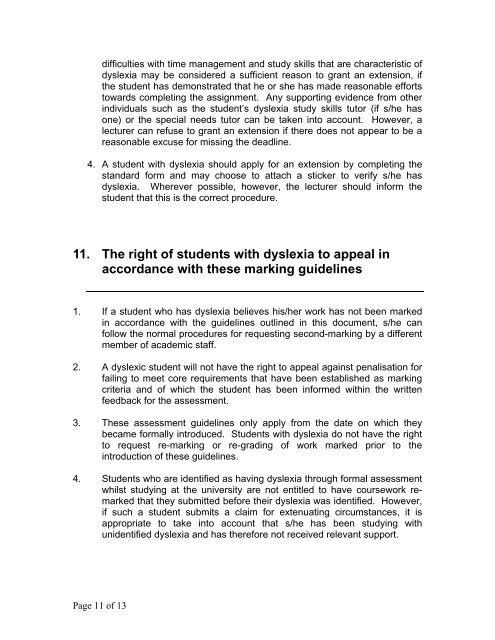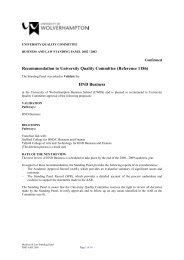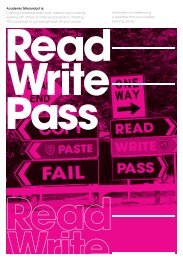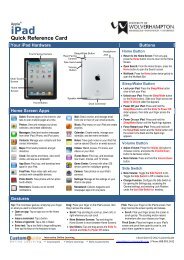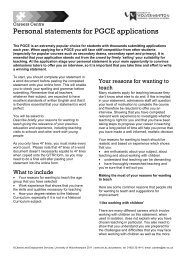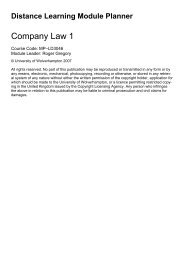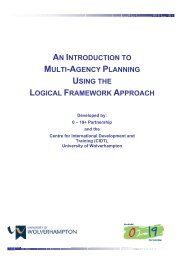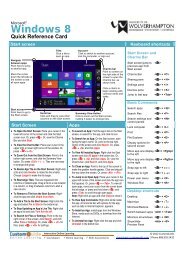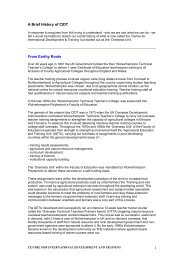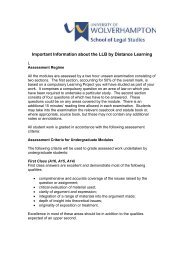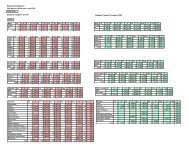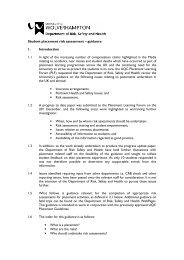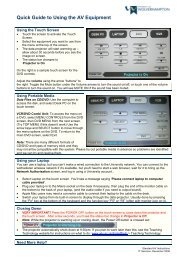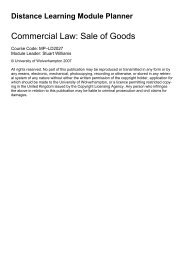Guidelines for Marking the work of Students who - University of ...
Guidelines for Marking the work of Students who - University of ...
Guidelines for Marking the work of Students who - University of ...
- No tags were found...
Create successful ePaper yourself
Turn your PDF publications into a flip-book with our unique Google optimized e-Paper software.
difficulties with time management and study skills that are characteristic <strong>of</strong>dyslexia may be considered a sufficient reason to grant an extension, if<strong>the</strong> student has demonstrated that he or she has made reasonable ef<strong>for</strong>tstowards completing <strong>the</strong> assignment. Any supporting evidence from o<strong>the</strong>rindividuals such as <strong>the</strong> student’s dyslexia study skills tutor (if s/he hasone) or <strong>the</strong> special needs tutor can be taken into account. However, alecturer can refuse to grant an extension if <strong>the</strong>re does not appear to be areasonable excuse <strong>for</strong> missing <strong>the</strong> deadline.4. A student with dyslexia should apply <strong>for</strong> an extension by completing <strong>the</strong>standard <strong>for</strong>m and may choose to attach a sticker to verify s/he hasdyslexia. Wherever possible, however, <strong>the</strong> lecturer should in<strong>for</strong>m <strong>the</strong>student that this is <strong>the</strong> correct procedure.11. The right <strong>of</strong> students with dyslexia to appeal inaccordance with <strong>the</strong>se marking guidelines1. If a student <strong>who</strong> has dyslexia believes his/her <strong>work</strong> has not been markedin accordance with <strong>the</strong> guidelines outlined in this document, s/he canfollow <strong>the</strong> normal procedures <strong>for</strong> requesting second-marking by a differentmember <strong>of</strong> academic staff.2. A dyslexic student will not have <strong>the</strong> right to appeal against penalisation <strong>for</strong>failing to meet core requirements that have been established as markingcriteria and <strong>of</strong> which <strong>the</strong> student has been in<strong>for</strong>med within <strong>the</strong> writtenfeedback <strong>for</strong> <strong>the</strong> assessment.3. These assessment guidelines only apply from <strong>the</strong> date on which <strong>the</strong>ybecame <strong>for</strong>mally introduced. <strong>Students</strong> with dyslexia do not have <strong>the</strong> rightto request re-marking or re-grading <strong>of</strong> <strong>work</strong> marked prior to <strong>the</strong>introduction <strong>of</strong> <strong>the</strong>se guidelines.4. <strong>Students</strong> <strong>who</strong> are identified as having dyslexia through <strong>for</strong>mal assessmentwhilst studying at <strong>the</strong> university are not entitled to have course<strong>work</strong> remarkedthat <strong>the</strong>y submitted be<strong>for</strong>e <strong>the</strong>ir dyslexia was identified. However,if such a student submits a claim <strong>for</strong> extenuating circumstances, it isappropriate to take into account that s/he has been studying withunidentified dyslexia and has <strong>the</strong>re<strong>for</strong>e not received relevant support.Page 11 <strong>of</strong> 13


